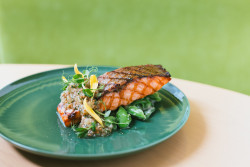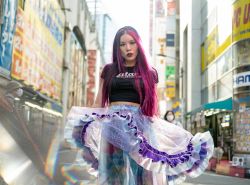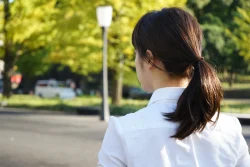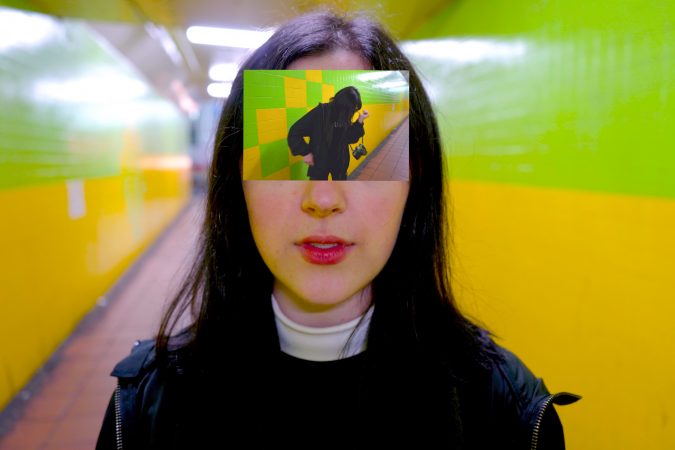
This project unfolded in response to public comments made against Shiori Ito, a Japanese journalist and filmmaker who won a high-profile civil lawsuit against Noriyuki Yamaguchi, her alleged rapist, in December 2019. Following the ruling, Yamaguchi continued to attack the validity of Ito’s claim by telling reporters that “real sexual assault victims do not smile at press conferences.” It is with the utmost respect and support for womxn* all over the world who are struggling, fighting, winning and losing, that this project was born.
*a variant of the word designed to include all women-identifying individuals, including trans and nonbinary women.
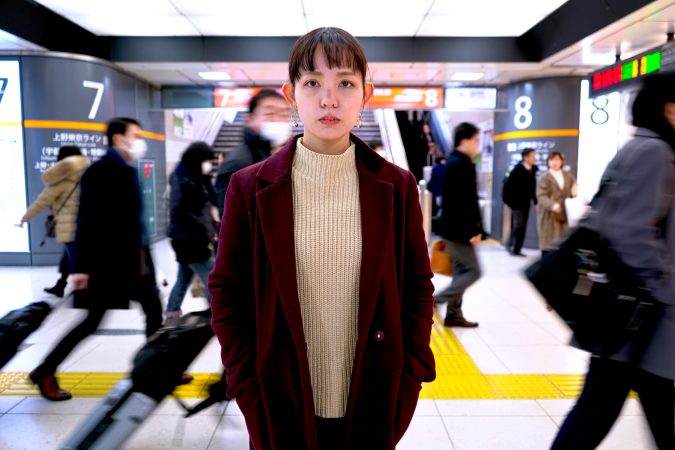
Kana / Tokyo Station
“When I was a child, someone told me I never smiled.”
“You’d look better if you smiled. You should have a smile on your face all the time,” they said when Kana was six years old. Seven. Ten. Fifteen. Twenty nine. Not a year has passed without being met with such comments, nor trying to live up to them. “In a way, it’s a compliment. Or, I used to think so. It made me feel like I had a beautiful smile.” But as an adult she says the muscles in her cheeks begin to ache. With a breath of relief she explains that she’s exploring new spaces now: unsmiling ones. “There’s a freedom in that.”
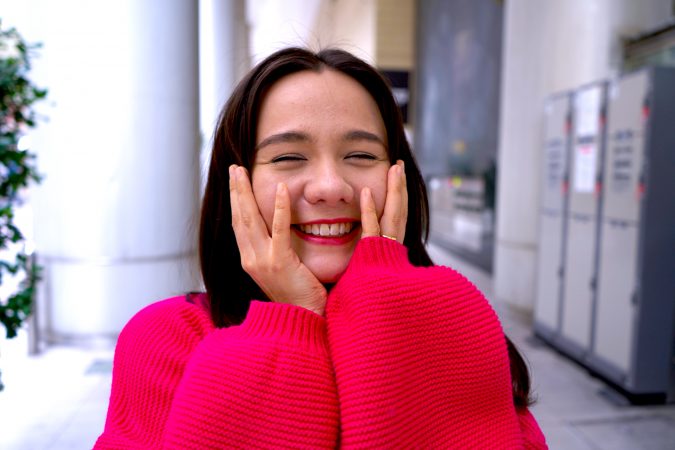
Ayumi Melody / Shibuya Station
“They can’t take that away from me.”
“I don’t think I admitted to myself that it was rape at the time, I didn’t want to internalize that word, but it quickly became the reality because that’s what it was.” She can still remember his face and his text message the following day, which makes her shudder. “It’s not always possible to say ‘no,’” Melody says. “It shouldn’t only be up to us, and it shouldn’t have to come to that.” She relays how difficult it was and still is to convince others; a relived trauma in having to explain herself. But here, she does so in pink. Melody touches her fuschia-colored sweater and smiles, “I’ve consciously made a decision to wear this happy, bright color.”
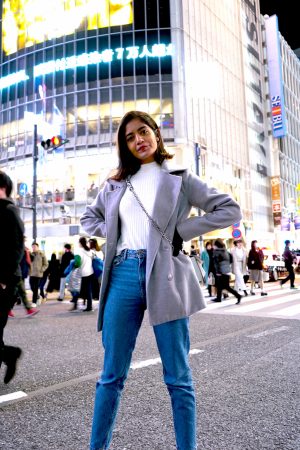
Kalyani / Shibuya
“I always want to feel badass.”
“My friend was throwing up and these men came to talk to us. They were touching me.” Kalyani walks me through a scene outside a club in the middle of summer: Her friend is stumbling and can’t walk. Kalyani carries her to a safe place where they can catch their breath. “That’s when the guys started swarming… I’m extra cautious when going to clubs in Japan now,” she says. “I wish I could enjoy it and just not care.”
When Kalyani was 10 years old, there was the presence of a much older boy in her life. “They are raw memories,” she says. “Vivid.” The kind that doesn’t leave your skin. “It’s sad that I had to go through these types of things so many times in order to be able to say ‘no.’” But she feels she can say it now. Kalyani smiles with resolve, “A full no.”
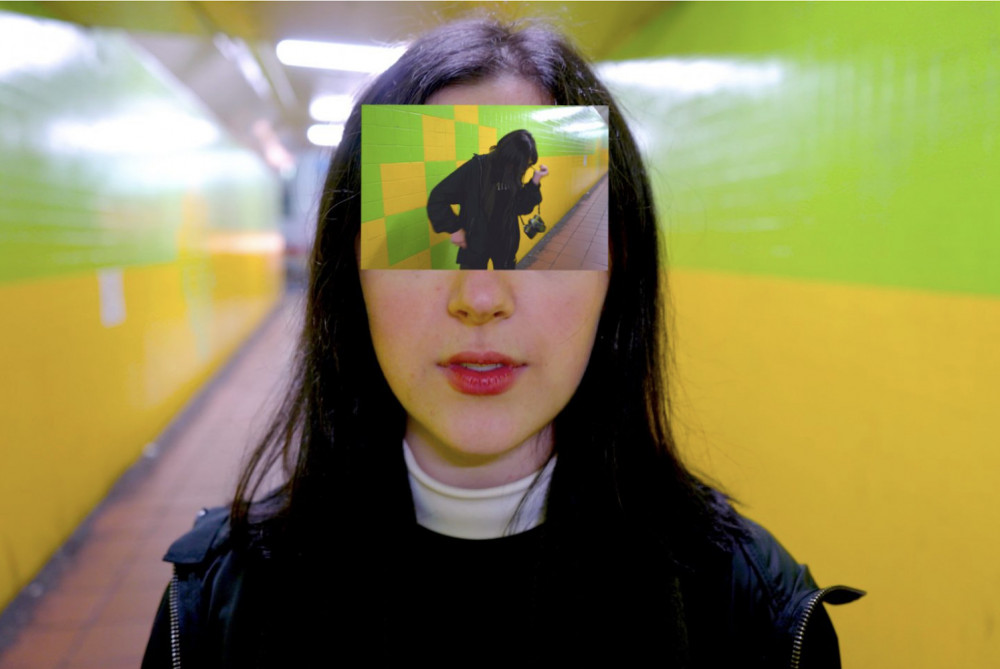
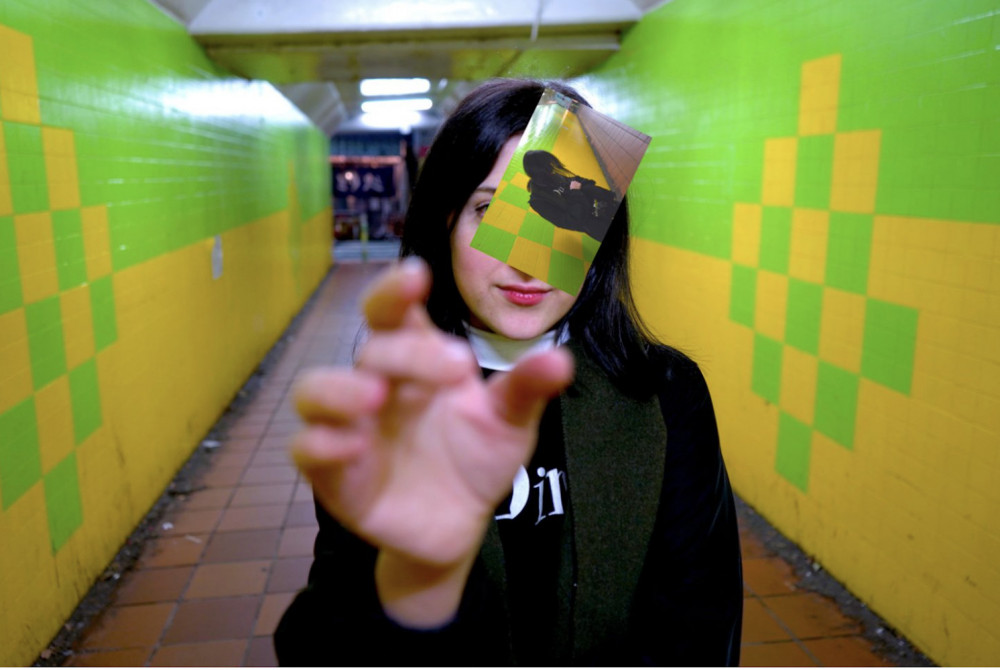
A tunnel in Shinjuku
“I see this moment, and they don’t see it, and I just want you to see how beautiful it is.”
She takes photos of herself when she’s alone. But those photos are heavily scrutinized. Why am I taking this photo?, she asks herself. Inner dialogue, ever present. “Most of the way I see myself is through the male gaze. Accidentally.” She still remembers the first time someone said, “That guy is checking you out,” as if this was supposed to mean something — the ultimate power, value, gift. Assessment. “He thinks you’re beautiful.”
Like other womxn who have been assaulted, she was taught to question herself: was it my fault? She says no. Of course not. But this is one of the hardest parts, the section most dissected. A heavy weight, society’s gaze as it shifts its focus back onto us. It only makes sense for a woman with a camera to shift it back onto everything else. We spend the rest of the night taking photos. In Shinjuku, in tunnels, under lights, taking turns on who becomes the center.
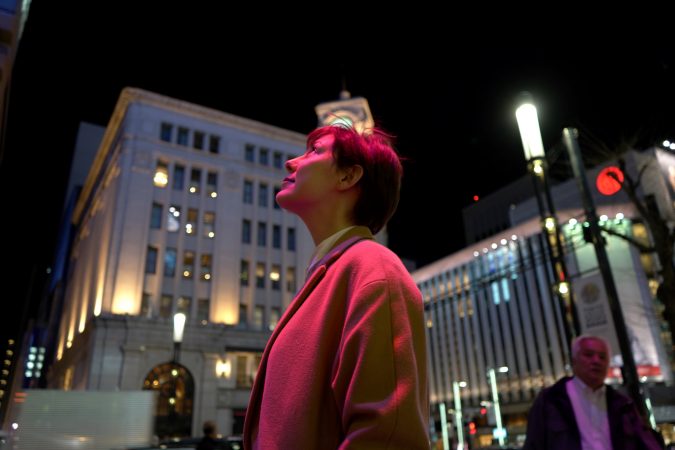
Rebecca / Beneath a pink light in Ginza / An alley in Shimbashi
“To accept a person in their wholeness…”
“When you’re a little girl, you’re not sweet and angelic if you’re in a sullen mood.” Rebecca describes a childhood of looking up to the female characters in Jane Austen novels, women in literature who were admired for their gentility and patience. “We are never taught to emulate somebody who is not a smiler,” she says. “There is no room for ‘ugly-looking’ feelings.”
“Feminism is about learning to trust yourself as a human being, and it’s about building confidence.” Nothing reduced, flattened, or warped. A whole, complex, evolving, real-life thing, that may or may not be smiling at any given moment. “The range of who you are as a full person.”
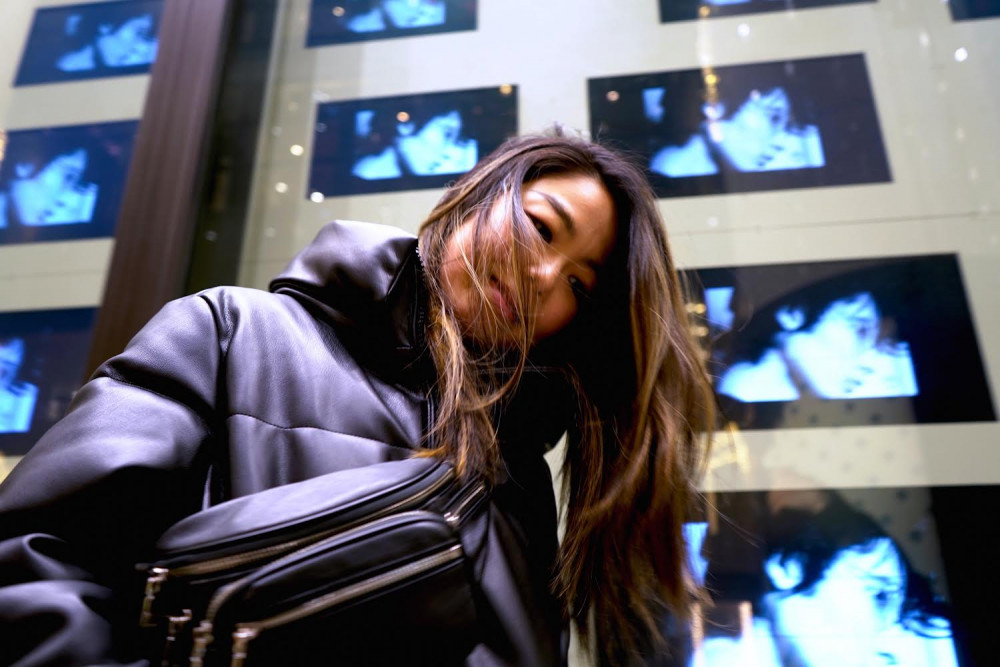
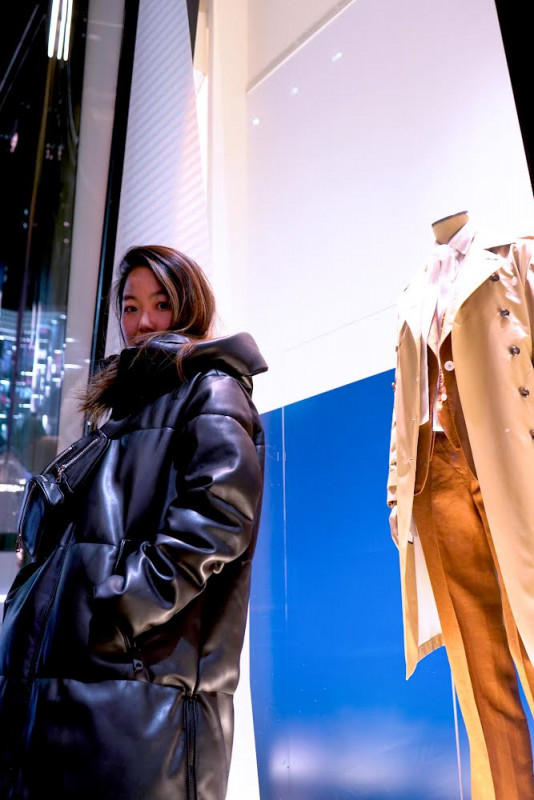
Yukiko / Ginza
“I don’t wear things that other people wear. I always pick the things that stand out for me.”
Your skirt is too short. The guys would say. “I didn’t care because I wanted to wear that outfit, and just wanted to try.” Yukiko says she didn’t have the confidence to wear what she wanted for a while, and felt stifled by the negative comments she knew would be waiting for her when she did. “I know that I don’t fit the Japanese norm and I feel more powerful because of that.”Yukiko laughs through a particular hatred she harbors for white shirts with navy stripes. “They’re everywhere in Japan. Everyone wears them.” For Yukiko, conservative fashion feels suppressing, something in the way the fabric says be this way. “I like it when people present themselves no matter what people say.”
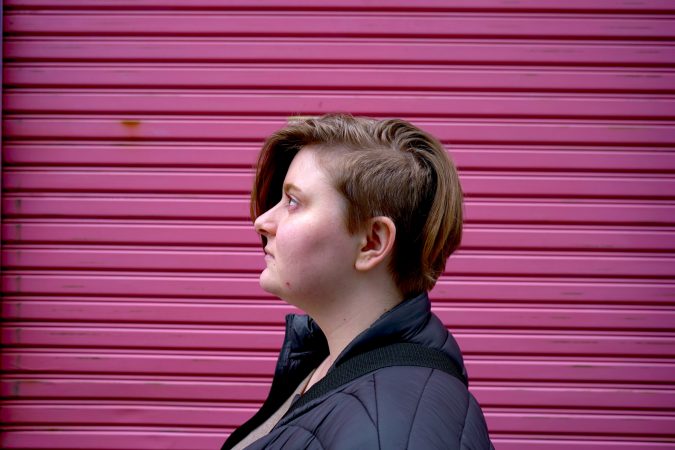
Max / Somewhere between Sangubashi and Hatsudai
“I’m interested in ugly happiness”
“There was this oscillation of utter, complete worthlessness and feelings of resentment. It was exhausting and miserable. Why do I feel this way? Why do other people make me feel this way?
“When the right to be happy has been taken away from you, there is strength in getting it back.” Max looks out the cafe window. There are dried flowers hanging on the walls around us. “The process of reclaiming joy is really hard, and we don’t have to be consistently ruled by our trauma or depression.”
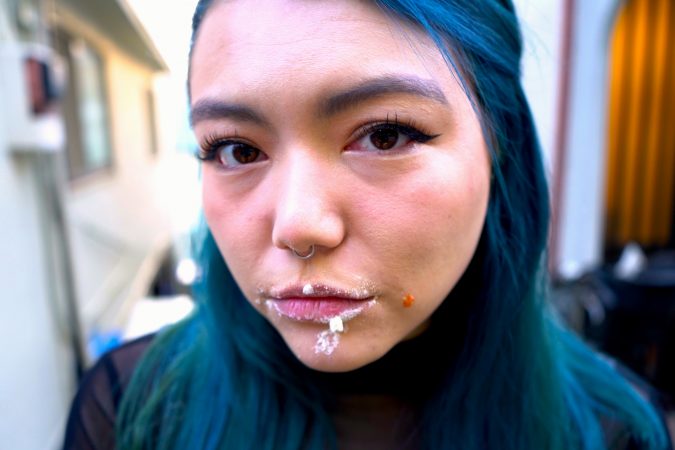
Erika / Sangubashi
“It’s nice to feel sexy and wanted, but that’s not where my power comes from.”
Why did you make this? You should take self portraits in a prettier way. You’re so strange. Erika laughs when she tells me what some men on Instagram have related to her about her art. “I think my work is done if they feel uncomfortable. My favorite thing is to send the kissing-winky-face in response.”
At her previous job, Erika was encouraged to be gentle, wear makeup, heels and a skirt. People like women when they’re like this. You’ll get ahead — advice given from colleagues, acquaintances and family friends. Erika gave it a try. “I was trying to be as Japanese as possible. Mild mannered, very smiley, very cute. Towards the end it wasn’t sustainable,” she says. “I got more done by being angry. I stopped smiling. If I smile now, it’s on my terms.”
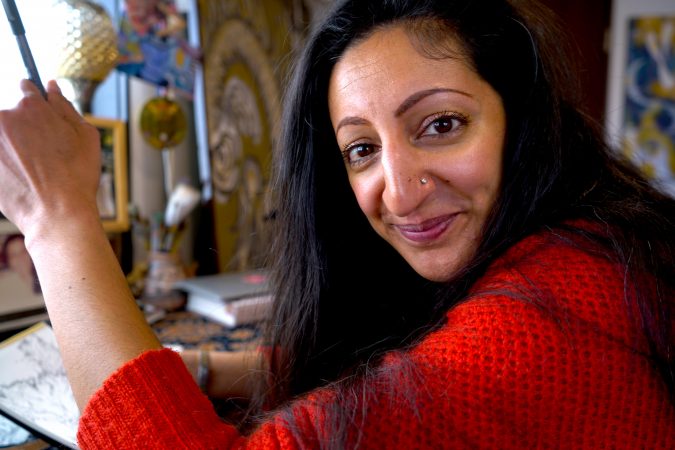
Divya / In her home
“Every time I made art, I felt beautiful.”
People at school almost always expected Divya to have paint somewhere; she wore overalls and became what might be known as a tomboy. “I remember beginning to wear more revealing clothes and then went in the complete opposite direction.” She remembers women around her enjoying being photographed, and that they were always told they were beautiful. “I knew I wasn’t, in the male gaze, an ‘attractive’ girl.” Divya recalls being surprised when a guy she liked told her he liked her. “I imagined him liking someone who looked like him: blonde hair, blue eyes,” she says. “I was the only Indian in the village.”
A small list of the things Divya finds beauty in: “Bark. I love marks in tree bark. Split-second interactions. I love the way the clouds move. I love Masa [her husband]… People who have suffered, who have come from suffering — surrender is very beautiful. Trust. Effort. Struggle. Shells, and pine cones.”
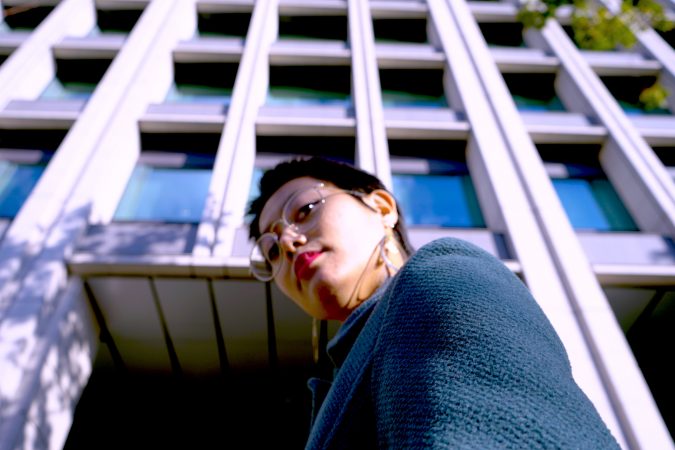
Laksmi / Otemachi
“It’s important to create your own narrative.”
“Divorce is a big no in Indonesia. [Many] are forced to stay married.” As a child, Laksmi bore witness to harsh judgements against her mother for being a single mom and a divorced woman. Her mother was condemned and criticized for wearing makeup because she didn’t have a husband to show it to, and Laksmi believed they were right. “I didn’t know better,” she says.
As Laksmi got older, she dove into various books that taught her altogether different stories about women. When her mom began dating an abusive man, Laksmi told her to end the relationship. “She thought she deserved it when they called her a slut,” she says. No one should make you feel like that, words she and and her mother now use to rewrite their narratives together as mother and daughter.
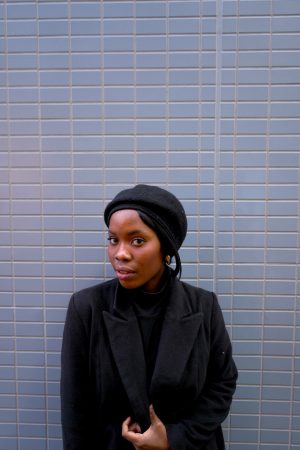
Serah / Shimokitazawa
“My own gaze is the most critical.”
“How am I going to present my body? Do I feel comfortable? Am I trying to erase a part of me?” This is a shortlist of the many questions Serah asks herself before deciding to post an image online. As if on a stage, Serah wonders how she should perform, every inch of her on display for all to see. It’s daunting when one realizes the power a photo contains, especially when the content is of oneself — how it’s received is a reaction that doesn’t always belong to you.
Serah shows me a photo of her at the gym; a clearly defined abdomen, flexing in the mirror, snapping a selfie. “My friends told me I was too fit, that I should look more womanly.” The men she dated made similar reports. They said something like, “I want something soft to hold onto.” And so her image changed. Again. And again.
Serah is experimenting with a different approach now. “It’s up to me.” She says. “If I don’t want to take a picture, it’s okay. I’m more aware of me, as a woman.”
